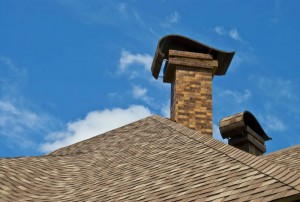Whenever September arrives, Hudson Chimney knows that not only will we be busy preparing chimneys in the Jacksonville, Florida area for the upcoming fireplace season, but we will also be getting ready to celebrate with the Chimney Safety Institute of America (CSIA) during their annual National Chimney Safety Week, which occurs the last week of September (September 27 – October 3, 2015). This is an opportunity for chimney professionals across the country to educate people about fire and chimney safety before the weather starts getting cold. A fireplace and chimney system can present many hazards, so it is important to know and follow safety practices whenever you use this part of your home. The last thing you would want to happen this winter is a devastating chimney fire because you neglected to schedule your annual chimney inspection. The Director of Education for the CSIA, Ashley Eldridge says, “Fires in chimneys can start for a variety of reasons. They can be poorly built, or incorrectly designed, or the chimney flue sees a buildup of creosote over time. If you’ve ignored the need for an inspection, you are taking a risk.” Other than having your chimney professionally inspected every year, the CSIA offers other things you should do to reduce your risk of a chimney fire, and we would like to share them with you.
Your chimney is not the only part that should be inspected.
Your wood-burning or gas fireplace should also be examined by a professional to be sure no potential hazards exist. A wood-burning firebox could also have a large buildup of creosote, and this can be an extremely dangerous situation. Ensure your firebox is free from any creosote accumulation before you light a fire inside it. Gas and propane logs may not produce any soot or creosote, but they can deposit corrosive substances within your chimney. Ceramic logs in gas fireplaces can also deteriorate and clog the vents and pilot light. Having the logs checked in your gas fireplace can prevent chimney fires and other fireplace issues that can happen when the pilot light and other connectors are not correctly working.
Be prepared for all severe weather hazards.
To be sure you are ready for a severe storm, such as a hurricane, the CSIA suggest three steps:
1. Know your risk.
Before leaving home in the morning, check the weather reports to be sure you are prepared for any coming weather event.
2. Take action!
Find out more about what kind of weather your area should expect this fall. Make an emergency supplies kit. Come up with a communication plan for your entire family in case of an emergency.
3. Be a force of nature.
If a hurricane or other severe weather storm is heading your way, spread the word! Inspire your friends and family by letting them know how you have prepared for the potentially bad weather.
If you would like to learn more about National Chimney Safety Week, contact us at Hudson Chimney. We are happy to educate you on fire prevention!
